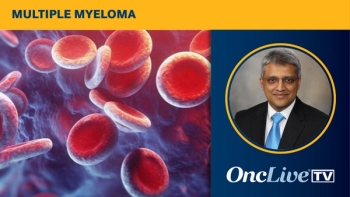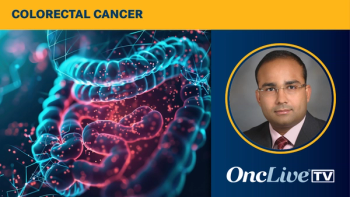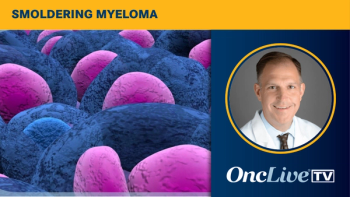
Supplements and Featured Publications
- Novel Therapeutic Approaches to Target PI3K Mutations in HR+/HER2– Breast Cancer
- Volume 1
- Issue 1
Dr Jhaveri on RLY-2608 in PIK3CA-Mutant Advanced Breast Cancer

Komal Jhaveri, MD, FACP, discusses findings from the dose-escalation portion of the first-in-human phase 1 ReDiscover trial (NCT05216432) of the PI3Kα inhibitor RLY-2608 in patients with PIK3CA-mutant advanced breast cancer.
Komal Jhaveri, MD, FACP, section head, Endocrine Therapy Research Program, clinical director, Early Drug Development Service, Memorial Sloan Kettering Cancer Center, discusses findings from the dose-escalation portion of the first-in-human phase 1 ReDiscover trial (NCT05216432) of the PI3Kα inhibitor RLY-2608 in patients with PIK3CA-mutant advanced breast cancer.
In arm 1 of the dose-escalation portion of ReDiscover, patients with PIK3CA-mutant advanced solid tumors received RLY-2608 monotherapy to determine the maximum tolerated dose (MTD)/recommended phase 2 dose (RP2D). In arm 2 of the dose-escalation portion, patients with PIK3CA-mutant, hormone receptor–positive, HER2-negative advanced or metastatic breast cancer received RLY-2608 plus fulvestrant (Faslodex) to determine the MTD/RP2D.
Of the 42 total patients enrolled to the dose-escalation portion, arm 1 enrolled 19 patients to receive twice daily doses of RLY-2608 at 400 mg, 300 mg, 200 mg, 100 mg, or 50 mg or daily doses of 400 mg or 200 mg. Arm 2 enrolled 23 patients to receive twice-daily doses of RLY-2608 at 800 mg, 600 mg, 400 mg, 200 mg, or 100 mg in combination with fulvestrant.
Of the 16 patients with breast cancer and measurable disease, 9 experienced radiographic tumor regression with RLY-2608 and 81% achieved stable disease regardless of genotype. Eleven of the 16 patients are still receiving treatment. Despite these findings, longer follow-up is necessary to see whether additional patients experience tumor regression, Jhaveri says.
Notably, 1 heavily pretreated patient who received RLY-2608 monotherapy at 400-mg twice daily achieved a partial response (PR). This patient had received 12 prior lines of therapy, including fam-trastuzumab deruxtecan-nxki (Enhertu), and their tumor harbored 2 PIK3CA mutations. This finding was encouraging, as few patients in this trial had achieved PRs at the data cutoff date, according to Jhaveri. This trial has a small dataset, with few patients treated with the RLY-2608/fulvestrant combination at varying dose levels, and the MTD has yet to be determined, Jhaveri concludes.
Articles in this issue
almost 3 years ago
Dr Hamilton on the Potential of RLY-2608 in PI3K-Mutated Breast Canceralmost 3 years ago
RLY-2608 Shows Broad Therapeutic Potential in PIK3CA-Mutant Solid Tumors
























































































